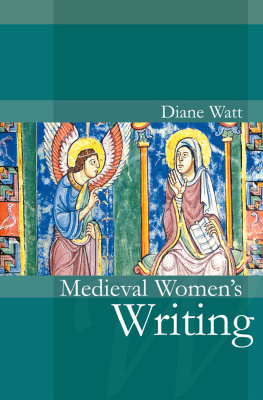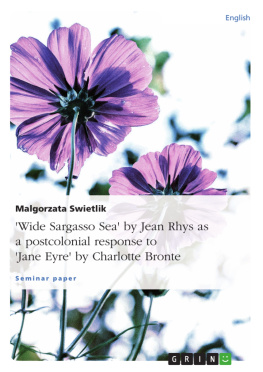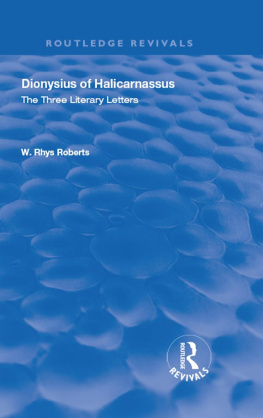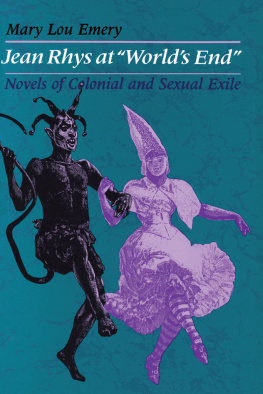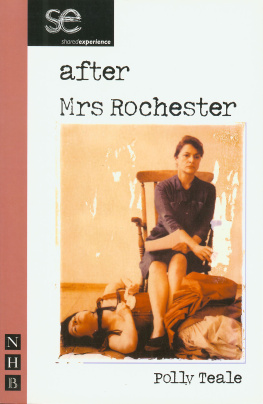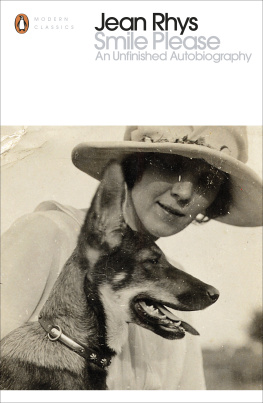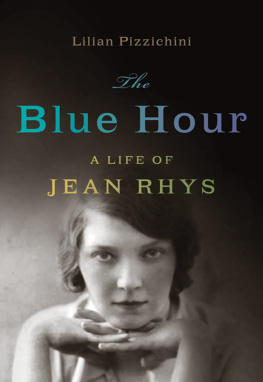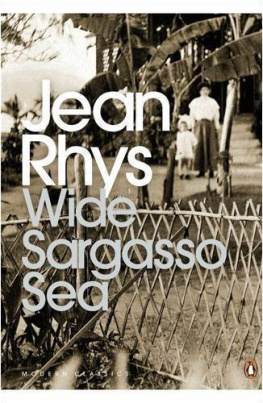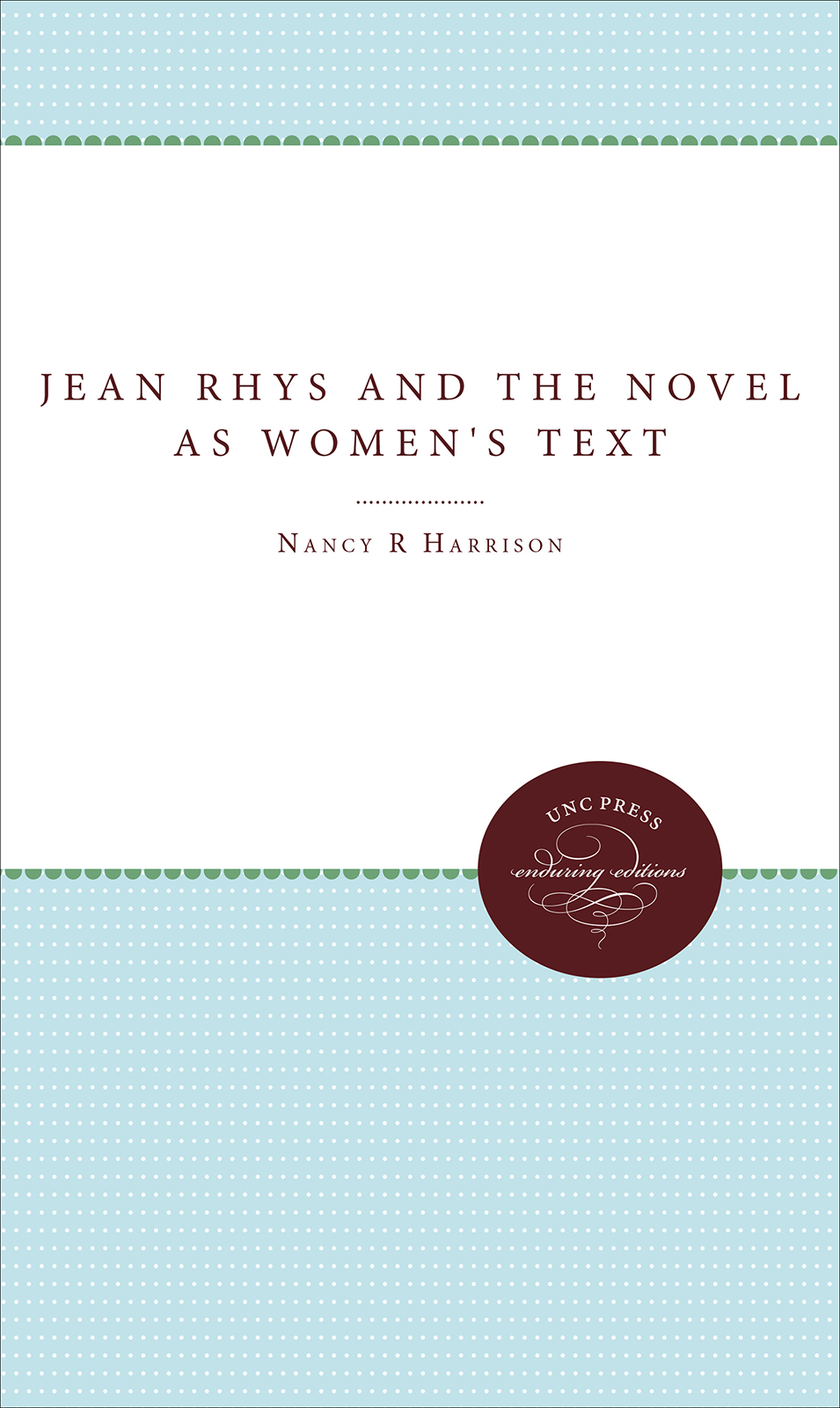THIS BOOK found its first incarnation in Austin, Texas; its second, in Tuscaloosa, Alabama. I would especially like to thank two people for their generous attention and for spirited and scrupulous readings of the book in that first stage of its being: Gayatri Chakravorty Spivak and James L. Kinneavy, both, at that time, of the University of Texas at Austin. Particular thanks are also due to Janice Haney-Peritz for her consistently responsive reading and sensitive support; to Angela Ingram for her friendship and for her immeasurable help in garnering books and other library resources; and to Karen Umminger of Bookwomen. I owe a special note of gratitude to Ann Lindsey for unfailing moral support when I needed it most. I would also like to acknowledge the continuing influence of Lois Mar-chino, a good Friend and an early mentor. To Amanda Masterson, my thanks for her good judgment, good humor, and practical help at a crucial stage in the manuscripts revision. For persistent, energetic encouragement toward publication, my thanks to Jane Marcus.
To the English Department of the University of Alabama at Tuscaloosa, and especially to Chairperson Claudia Johnson, my gratitude for the released time that allowed the final form of the manuscript to take shape. For special attentiveness to the needs of my work and for their contributions to the project in which we are all engaged, my thanks to Elizabeth Meese and Alice Parker. For sharing many difficult times in this second shaping of the bookand, importantly, for helping me to bridge the gap between the first and secondI acknowledge a debt of gratitude to Bethsaida Fletcher for her unflagging support, encouragement, and care.
INTRODUCTION
I BEGAN THIS STUDY with a basic assumption derived in part intuitively and confirmed often enough to arouse my further interest in verifying its general application: more often than not, womens novels in this century seemed to be more directly autobiographical than are mens novels. I wondered why this might be, and what effect it might have on a womans writing practice itself (not simply on the content of the novel), and on another womans reading response to that practice. My immediate background was in critical and rhetorical theory within the framework of feminist theory; my compelling interest, the practical effect of writing on both writer and reader. In particular I wanted to satisfy my curiosity as to how we respond to our rhetorical situation in our aesthetic practices. The rhetorical situation, as Lloyd Bitzer defined it almost twenty years ago in an influential essay, is a complex of persons, events, objects and relations presenting an actual or potential exigence which can be completely or partially removed if discourse, introduced into the situation, can so constrain human decision or action as to bring about the significant modification of the exigence. (to use another phrase that connotes a configuration similar to Bitzers, but with a difference allowing some expansion in our thinking) is of a different nature. Our rhetorical context, the situational context in which we find ourselves, is made up of a different complex of persons, events, objects and relations; therefore the actual or potential exigence we discern is not, and cannot be, construed to correspond to that of the dominant culture. Their rhetorical situation has often explicitly, as well as inferentially, demanded our capitulation to their more pressing needs, the exigencies of their situational context. The status quo is precisely what does not answer or respond to the exigencies of our situation.
In a literary context, audience-oriented theories and analyses that concern themselves with reader response offer a route toward possible answers to my original question. Indeed, the framework of inquiry that readership or reader-response theories emphasize is one into which I have settled myself, but without direct recourse to most of the specific formalizations of the concept. My reasons for eschewing their specific aid are twofold.
A radical split separates how women theorists and men in the same profession see the possibilities of the relationship between reader and writer. For the analyst who is a feminist (possibly and simply a woman), the audience for a woman writers work, and their (her) response to it, is no more a fiction than is the woman herselfwriter or reader. In particular, the effect of the womans work is not merely an aesthetic one, wanting only critical tools to release its full implications. A womans view of the reading-writing relationship is more practical and more political than that.
Jane Gallop brings many aspects of this view into focus in a response to a special issue of Critical InquiryWriting and Sexual Difference. As Gallop explains it, the difference within identifies the literary enterprise with the father and with masculine norms; the fictiveand the feminist politicalidentifies it with the mother.
This tension can be seen as both enabling and disabling insofar as we understand inquiry to mean the making of theory and the formal reading and analysis of texts, particularly literary ones. My own position is that, if we look to our fiction itself for some of the answers to our formal inquiries, we rightly identify and place those answers as formal answers to formal inquiry, derived from an explicitly political perspective. As people interested in literature, if we attempt to read our literaturewomens fictionas common readers first and foremost, keeping our later critical eye on that first reading, we can minimize, avoid, even eliminate (not merely ignore or only resist, as Judith Fetterley helpfully suggests we do) but in the dialogue among ourselves. We even say the word political in discussion of our literary inquiries, as instanced by Gallops review of the issues sketched above. In theoretical literary discussion in the more pervasively masculine arena, the word is rarely used except in dialogue concerning or including Marxist criticism or theory, or, increasingly, feminist criticism. Discussion in conventional settings seems to be firmly couched within traditions so politically entrenched and taken for granted as to need no specific mention. Indeed, the transparency (conversely the opacity) of the politics is not even semi-transparent, as Virginia Woolfs envelope of life would have it; rather, it is the informing and enveloping medium through which they conduct their academically objective (and, by implication, non-political) discussions.
In recognizing the connection between the subjective, particular instance and the political conduct of our own kinds of discussion, we only name what we, and they, already know. Literature is political. For women, at least, literary analysis can no longer pretend to find itself in opposition to real life. Rejecting Walter Ongs idea that the role in which the author has cast [the reader]... seldom coincides with [the readers] role in the rest of actual life, the woman reader (or the feminist reader of either sex) recognizes that a novel we can


